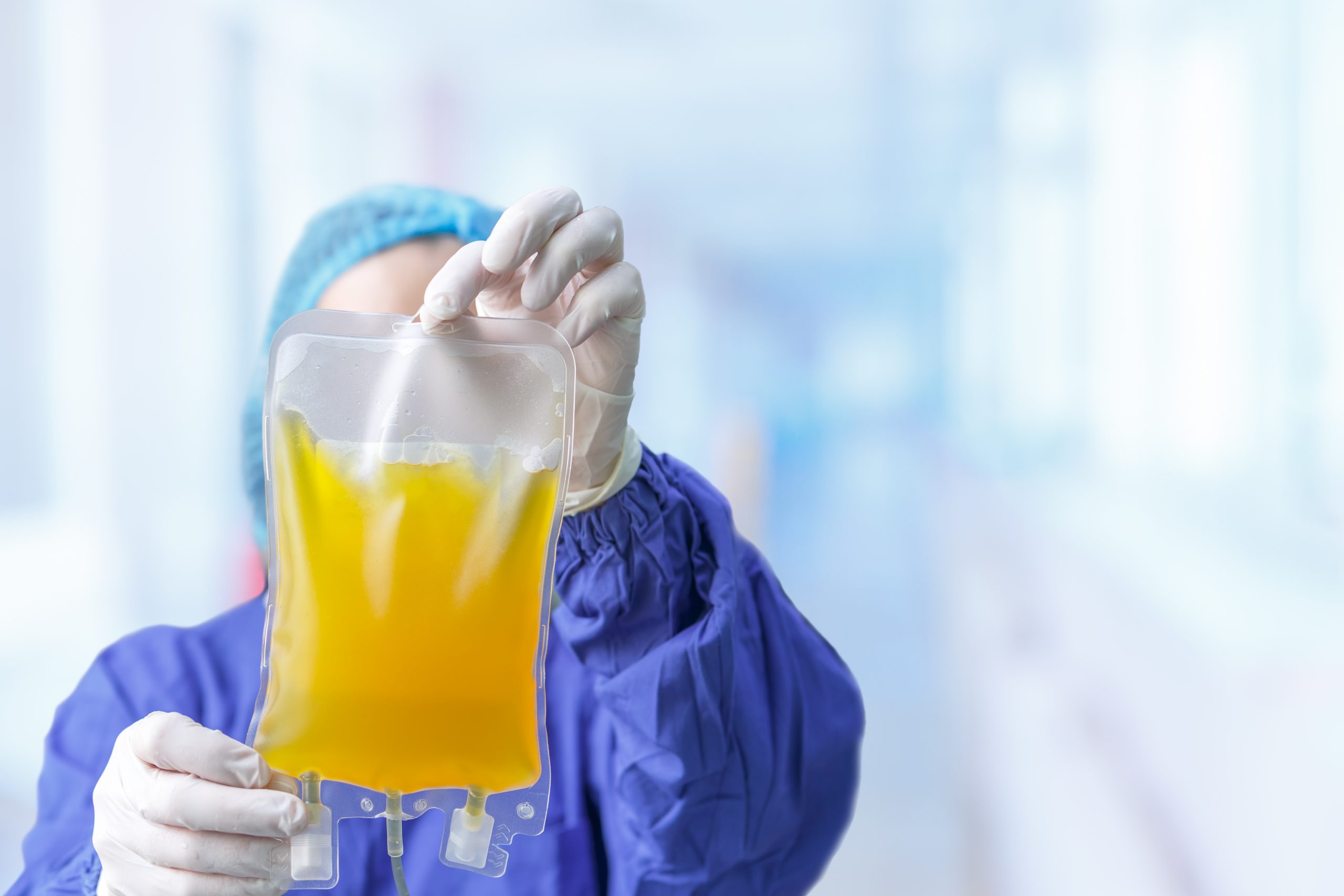Unpaid plasma and blood donations
Overview
Canadian Blood Services (CBS) collects voluntary donations of blood and plasma from and for Canadians. Plasma is the liquid part of blood. It is used to treat many serious health problems, including hemophilia, liver diseases and many types of cancer.
Plasma is the first body part that people have been allowed to sell in Canada. A private company recently opened two centres where they are paying people for their plasma. This poses a serious risk to the security of our blood supply since it is decreasing the amount of voluntary donations collected by CBS.
Canada was only the fourth country in the world to allow payment for plasma. Paying donors goes against the advice of international organizations like the World Health Organization, the International Red Cross and the European Blood Alliance. It also goes against the advice of Canada’s Krever Inquiry. The Inquiry looked at ways of ensuring the safety and security of the blood supply after the tainted blood scandal of the 1980s.
The issue in detail
Between 1986 and 1990, more than 1000 Canadians were infected with HIV and 28 000 were infected with hepatitis C from blood and plasma transfusions. In 1997, the Krever Inquiry on the tainted blood scandal found that the Canadian government, the Red Cross and Health Canada had not properly screened donors and tested donations. An arm’s length, non-profit organization called Canadian Blood Services was created to rebuild Canada’s blood system. The Krever Inquiry recommended that blood and plasma donors not be paid.
Research shows that paid donors have higher rates of infection. Quebec banned payment for blood and plasma in 1994. The World Health Organization and other international health agencies have a goal of achieving 100% unpaid blood and plasma collection globally by 2020.
In 2016, Health Canada gave a license to a private company to collect plasma in Saskatoon, Saskatchewan. This company, Canadian Plasma Resources, is paying people for their plasma. In 2017, the company opened a second clinic in Moncton, New Brunswick. All of the plasma collected by the company is being sold abroad. None of it is being used to help treat Canadians.
Once plasma from Canada is sold internationally, trade agreement rules will make it difficult for Canada to stockpile plasma for national use. We will need to continue selling plasma to the highest bidder. If there is another blood-borne virus, Canada won’t be able to make sure we have enough plasma for our own population.
Since Canadian Plasma Resources began paying people for plasma, CBS has noted a drop in unpaid donations at its clinic in Saskatchewan. Similar trends have been noted in other countries where payment for plasma is allowed. Studies have shown that once you begin paying people, they are less likely to donate without payment.
Public and private blood collection systems have very different goals. Our publicly-owned and operated national blood system serves the health needs of Canadians by helping to save lives. The goal of this system is to maintain and improve the health of Canadians. Canadian Blood Services operates in the public interest and is publicly accountable to Canadians. In times of crisis, our public blood system puts people’s lives first.
In contrast, the goal of the commercial plasma industry is to make profits. Rather than focusing on patients’ health, private plasma centres focus on selling plasma to the highest bidder. They don’t have the mandate of preparing for and addressing public health disasters.
Blood and plasma are national, public resources. Canada needs to ban payment for blood and plasma donations to protect these precious resources.
Updates
- May 2018: Senator Pamela Wallin introduced Bill S-252, the Voluntary Blood Donations Act. This bill would ban payment for blood and plasma donations across the country. It passed Second Reading in the Senate in October 2018. The Senate Committee on Social Affairs, Science and Technology decided not to pursue the bill.
- May 2018: Health Canada’s Expert Panel on Immune Globulin Product Supply released its report, Protecting Access to Immune Globulins for Canadians. As many public health care advocates predicted, the report failed to seriously consider the many concerns of Canadians regarding private, for-profit plasma collection.
- May 2018: British Columbia adopted a law banning payment for blood and plasma donations.
- July 2017: The private company Canadian Plasma Resources opened a second plasma collection centre in Moncton, New Brunswick, where they pay people for their plasma.
- March 2017: Alberta passed a law banning payment for blood and plasma donations.
- February 2016: The private company Canadian Plasma Resources opened a plasma collection centre in Saskatoon, Saskatchewan, where they pay people for their plasma.
- December 2014: Ontario passed a law banning payment for blood and plasma donations.
The CHC is calling for:
- Parliament to pass a bill banning payment for blood and plasma donations across the country.
- Health Canada to revoke the licenses granted to for-profit plasma collectors.
- Health Canada to work with Canadian Blood Services to develop a strategy to increase unpaid plasma donations in Canada.
Take Action
- Get informed by reading our mythbuster on paid plasma donations.
- Support our work on this file with a donation.
Further readings
Campaign and Policy Material:
- Submission to the Standing Senate Committee on Social Affairs, Science and Technology on Bill S-252, Voluntary Blood Donations Act (February 2019)
- Mythbuster on paid plasma donation (April 2016)
- Presentation to Canadian Blood Services’ Open Board Meeting (December 2017)
Documents obtained through Access to Information:
- ATIP documents about for-profit plasma clinic (November 2017)
Communications with the Federal Health Minister & Health Canada:
- Letter to federal Health Minister Philpott (February 2016)
- Letter to federal Health Minister Philpott (April 2016)
- Letter to federal Health Minister Petitpas Taylor (September 2017)
- Submission to the Expert Panel on Immune Globulin Product Supply and Related Impacts in Canada (October 2017)


